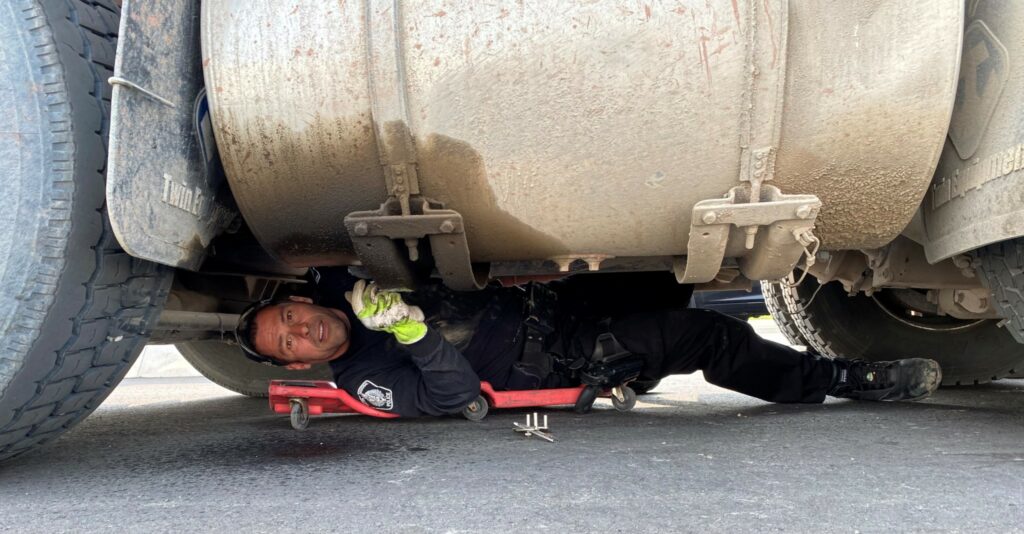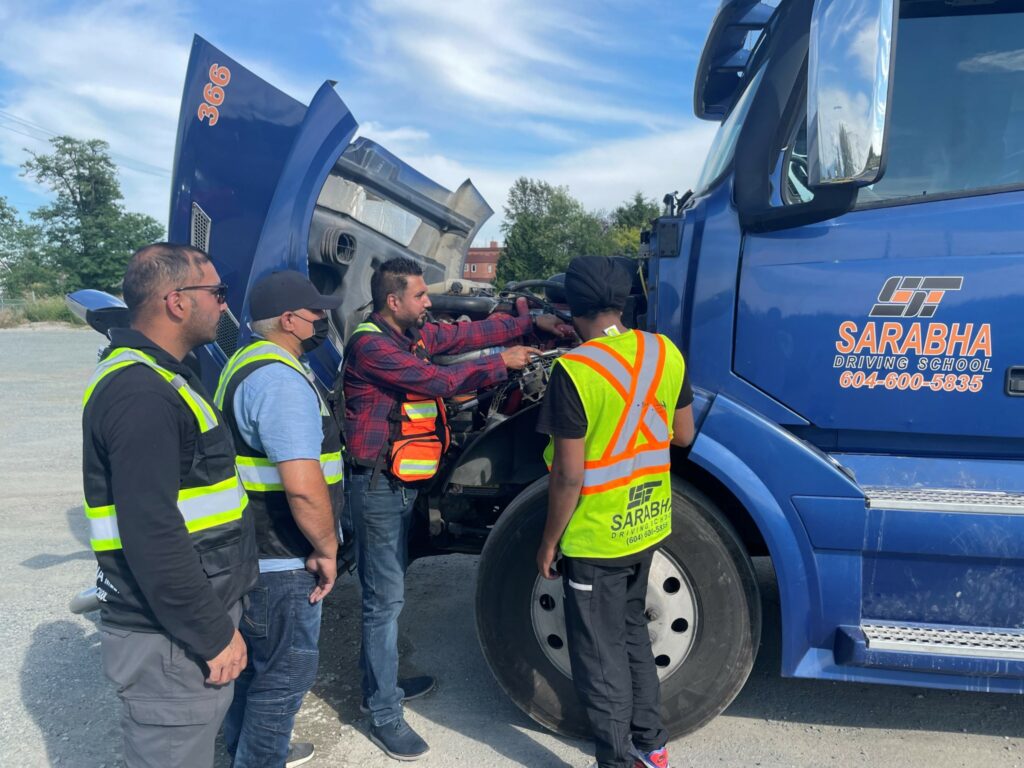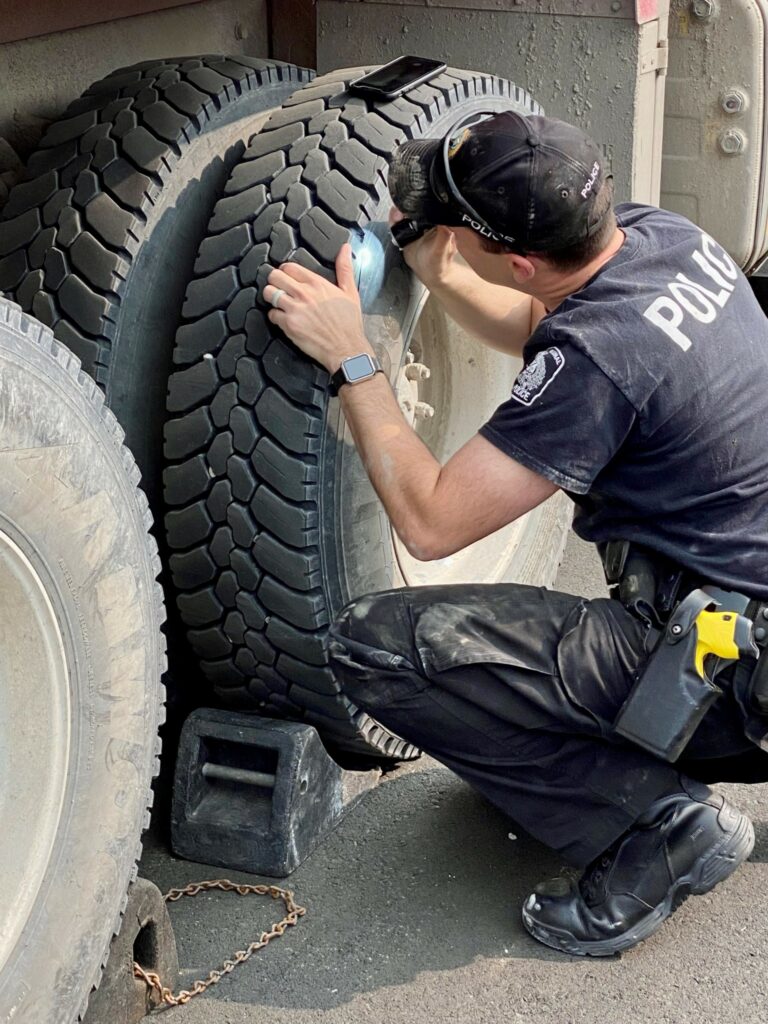Trucker Access › Forums › Diesel News › Roadcheck 2024 checks, tips: CVSA insight
- This topic has 0 replies, 1 voice, and was last updated 11 months, 1 week ago by
 EazyRiDer66.
EazyRiDer66.
-
AuthorPosts
-
May 13, 2024 at 3:45 pm #20331
 EazyRiDer66Keymaster
EazyRiDer66KeymasterDriver professionalism and organization skills are key to successfully passing this year’s International Roadcheck that will be held from May 14-16 across North America. This is according to the industry experts who shared insights into this year’s 72-hour safety blitz during the Trucknews.com webinar on May 9.
This year, local enforcement teams will examine two safety points that the Commercial Vehicle Safety Alliance (CVSA) finds to be often overlooked – alcohol and drug possession, as well as tractor protection systems.
On the vehicle safety side, inspectors will be particularly looking for the tractor protection valve and the trailer supply valve, said Jeremy Disbrow, CVSA’s roadside inspection specialist.
“I can tell you by the blank stare I get from drivers when I do that test, that it isn’t done on every inspection like it’s supposed to be. And so they’re usually surprised when we do check for it,” he says.

Halton Regional Police Service Constable Shane Barnes discovers a leaking fuel tank during an International Roadcheck inspection in Halton Hill, Ont. The vehicle was put out of service. (Photo: Leo Barros) During the Roadcheck inspections, drivers have to be prepared that both air hoses connecting the truck to the trailer will be removed, allowing air to escape, and the tractor protection valve’s function will be tested. The valve is supposed to close and stop the air loss by the time the air pressure reaches 20 psi. The vehicle will be placed out of service if the valve fails to close and continues to lose air past this threshold.
Drugs, alcohol posession
But this is not the only thing enforcement officers will keep an eye out for – impaired drivers on duty are an increasing problem on both sides of the border.

(Photo: iStock) Mathew Austin, who is with Saskatchewan Highway Patrol and is CVSA’s Region 5 vice-president, says there has been a notable increase in drug-impaired driving cases in Saskatchewan, following the legalization of cannabis. This increase is also attributed to enhanced enforcement efforts, such as more frequent roadside testing. He also emphasizes the ratio of drug impairment cases being higher compared to alcohol. “Right now, we are seeing drug impaired drivers at a rate of roughly 10 to one compared to alcohol use.”
Similar trends are observed in the U.S. Disbrow adds that while the majority of positive results account for cannabis use, some truckers have been using other stimulants and opioids. There are currently around 130,000 drivers in prohibited status at the FMSCA clearinghouse, he said.
The emphasis on drugs and alcohol during the Roadcheck is to raise awareness and ensure that drivers understand the importance of being fit for duty and compliance, particularly with different laws regarding these substances across different states and provinces.
“Here in Saskatchewan alcohol can be purchased and transported in a vehicle from point of purchase to the point of consumption. Power units are considered dwellings, so as long as the driver is off duty and not in control of the vehicle, they can responsibly consume alcohol. But there is a zero-tolerance policy for any measurable reading of cannabis, alcohol or any other drug in commercial drivers while they operate a commercial vehicle,” says Austin.
In the U.S., federal regulations strictly prohibit alcohol in the commercial vehicle at any time that driver is on duty — in the cab as well as in the trailer, unless it’s part of the manifested load, added Disbrow.
Preparing your fleet for Roadcheck
Legalization contributed to the wider acceptance of marijuana, and fleet safety managers should stay alert at all times, says Randy Mercer, director of risk management at Mullen Group. He says that while Roadcheck is an all-hands-on-deck educational and enforcement event, fleets should prioritize safety all year-round, not just during the annual road blitz.
When it comes to drugs and alcohol, for example, Mullen Group companies have a strict policy that is shared with drivers and office staff. And all drivers are tested pre-employment and post-accident. The company also does not allow alcohol in the vehicle at any time.
“Fit for duty is fit for duty. That’s as clear cut as you can get.”
Mercer also highlights the importance of leadership buy-in and a comprehensive approach to safety within the entire organization.

Amrit Grewal trains students on how to conduct a pre-trip inspection at Sarabha Driving School in Langley, B.C. (Photo: Supplied) “Operating safely is a group effort. It starts with your sales team not making promises [like], We can keep from here to there in a certain period of time’, your operations team, the maintenance department has to be involved with the equipment, and of course, the driver, they’re first and foremost, on the front lines, dealing with law enforcement and operating with the general public as safely as possible,” he says. “It takes more than one person to get a vehicle down the road safely.”
Mercer adds that Mullen also educates its drivers – each trucker goes through 20 hours of training that covers vehicle inspections, defensive driving, load securement, and the importance of pre-, mid- and post-trip inspections.
“I can’t stress the safety aspect of it from the top down. And it really is important that safety managers have that same outlook, and they encourage their drivers to report things rather than discourage them,” Disbrow agrees. “I can’t tell you how many drivers I’ve had over the years that have shown me pre-trip inspections they’ve written or post-trip inspections, and they write up violations and the company does nothing about it.”
Key advice for drivers from enforcement officers

(Photo: Leo Barros) Austin mentions that the professionalism of a driver is immediately apparent when they greet the enforcement officer, adding that the professional attitude is crucial and sets the tone for the interaction.
He looks for whether drivers know what documentation they are presenting and if they understand the significance of each document in the context of the inspection. Drivers should be organized and know what to expect during an inspection. This includes understanding the steps involved and areas that will be checked. A driver who is aware of these expectations is likely to be better prepared and more cooperative, says Austin.
Disbrow agrees, saying the opposite behavior is usually a “red flag” for an inspector. He also adds drivers who perform proper pre-trip inspections should have no concerns during the Roadcheck, as some of the most common violations – like tires, brakes, lights – can be prevented.
Other violations that lead to vehicles placed out of service include loading of hazardous goods, cargo securement, hours of service violations and inability to present and transfer ELDs data to the officer upon the request.
For more in-depth insights on how to get the desired yellow decal from CVSA during this year’s safety blitz, watch our recorded webinar for free.
-
AuthorPosts
- You must be logged in to reply to this topic.